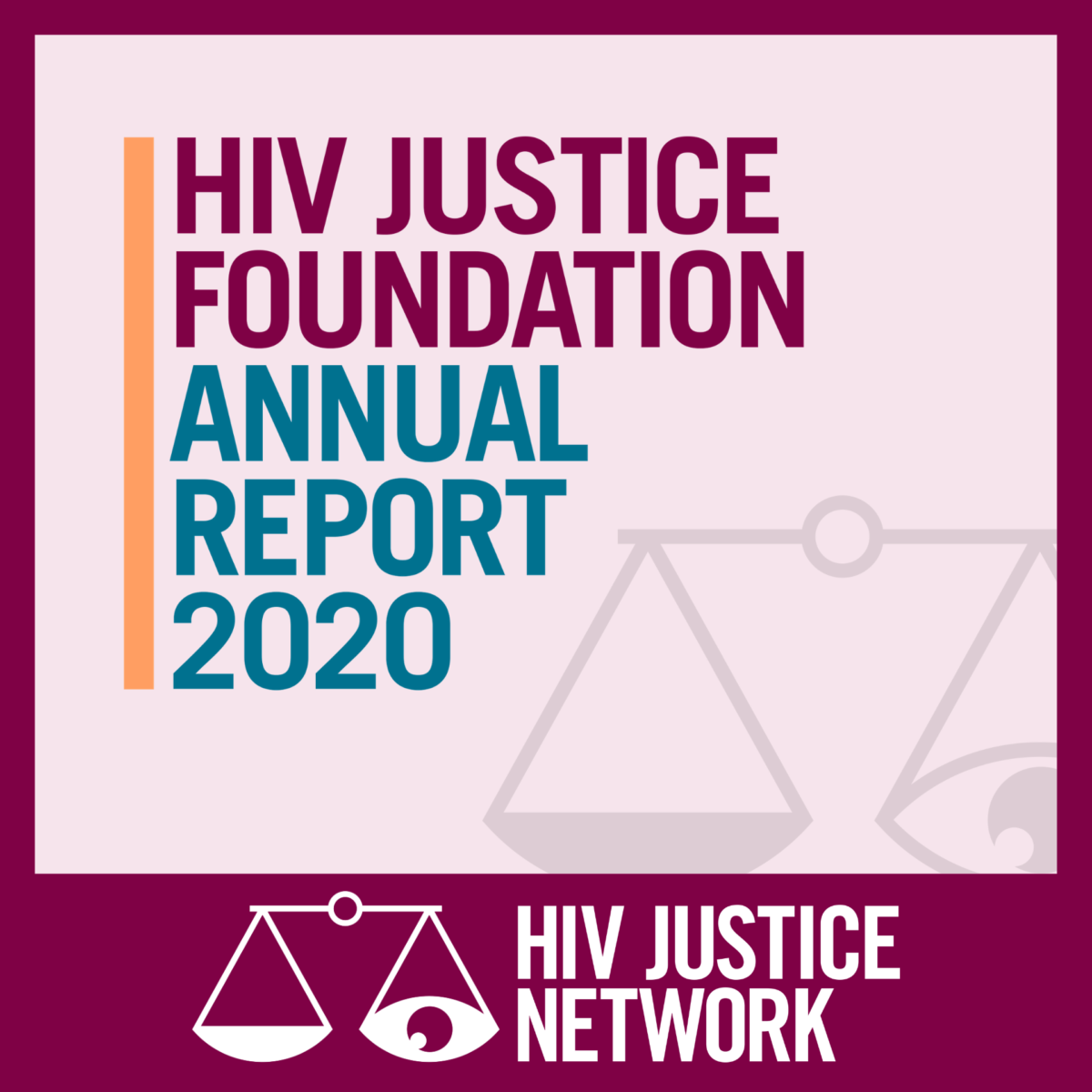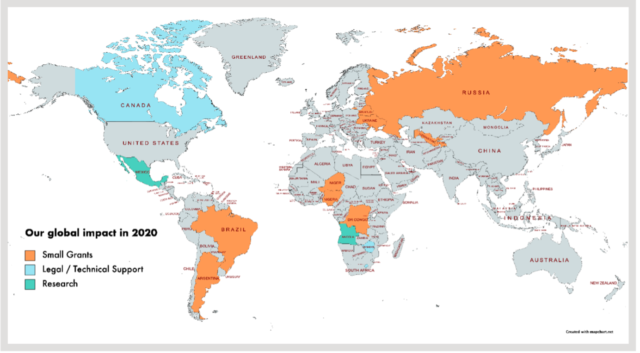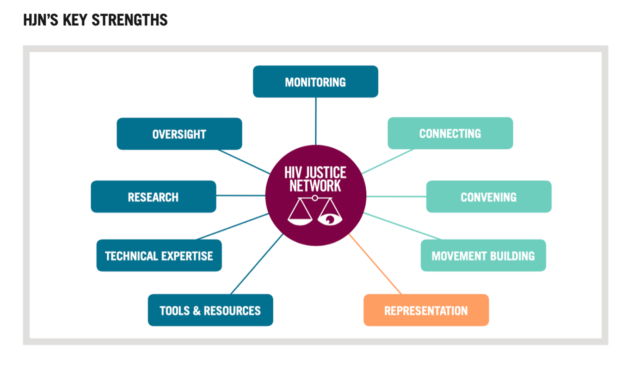
Looking back at an “extraordinary twelve months”
Today, with the publication of our Annual Report 2020, we look back at some of the key highlights of an extraordinary twelve months and look to the future.
The report is published by HJN’s fiscal host, the HIV Justice Foundation, an independent non-profit legal entity registered in the Netherlands as Stichting HIV Justice to specifically serve as the fiscal organisation for the HIV Justice Network and other related activities.
Although 2020 was the year that COVID-19 impacted us all, HIV criminalisation was still a major issue of concern. HJN began highlighting punitive responses to this latest pandemic in our HIV Justice Weekly newsletter in March 2020, as well documenting at least 90 cases of unjust HIV criminalisation in 25 countries through our global monitoring work.
Kevin Moody, who became Chair of the Foundation’s Supervisory Board earlier this year, after joining the Board last September, said: “HJN realised major achievements last year, as outlined in our Annual Report 2020. Aside from fulfilling an essential leadership role in combatting HIV criminalisation and convening diverse partners globally, Executive Director Edwin J Bernard led the team in evaluating its strategy with an eye to remain fit for purpose in a rapidly changing environment moving forward. That this was all achieved in the context of COVID-19 speaks highly of the dedication of the team and partners to reduce unjust criminalisation of people living with HIV everywhere.”
HJN milestones
Despite the many challenges faced by our partners working in-country, and regionally, HJN continued its mission to cultivate a global community of transparency and collaboration between individuals and organisations working to address HIV criminalisation. Key milestones for 2020 included:
- Launching our brand new Global HIV Criminalisation Database, which is the centrepiece of the newly designed HIV Justice Network;
- Hosting the first purely online version of our flagship meeting, Beyond Blame: Challenging Criminalisation for HIV JUSTICE WORLDWIDE which took place during the first week of the virtual #HIV2020;
- Launching the first in a new series of HIV Justice Live! web shows, which covered a wide range of issues from molecular HIV surveillance to exploring the impact and legacy of the Oslo Declaration to how to use our Global HIV Criminalisation Database;
- Co-ordinating the HIV JUSTICE WORLDWIDE coalition, which recently celebrated 5 years since its launch, including co-ordination of the Steering Committee’s COVID-19 criminalisation statement.
Throughout the year, as the lead grantee of the HIV Justice Global Consortium, funded through the Robert Carr Fund, we oversaw the distribution of small grant pots to via our partners working in Eastern Europe and Central Asia, Francophone Africa, Anglophone, and Lusophone Africa, and Latin America; and supported research in Angola and Mexico and legal interventions in Canada, Lesotho, and Zimbabwe.

Key Strengths
In the second half of 2020, we undertook a strategic review which found that HJN’s reputation amongst its stakeholders is strong, based on the expertise within the organisation, work it produces, and its leadership.
HJN has grown over the past year, taking steps to expand the team to complement our existing capacity around campaigns and communications, and finance and administration. We also expanded our governance, adding new Supervisory Board members, and convened our Global Advisory Panel (GAP), an international expert reference group of activists, lawyers, and academics – more than half of whom are openly living with HIV – from all regions of the world who are working on ending HIV and intersectional criminalisation.

Looking to the Future
Edwin J Bernard, HJN’s Executive Director, said: “Although the COVID-19 pandemic is likely to have a long-term, transformative impact on our work, our Strategic Review suggested a number of ways to leverage our expertise and broaden our reach beyond our current core focus. And so, although it has been a part of our analysis on HIV criminalisation for many years, we will be purposefully emphasising an intersectional lens in our future work.”
He added, “This means understanding and more frequently recognising where the issue of HIV criminalisation sits in relation to systemic discrimination that disadvantages people living with HIV on the basis of different, intersecting aspects of their identities, beyond solely their HIV-positive status. We anticipate this will open doors for collaborations and connections at project or funding levels with new partners across this spectrum. We look forward to sharing our new Strategic Plan, which will inform our programming and operations for 2022-2026, very shortly.”